Gerry Colvin: Revolution
[it's a creative commons download]



































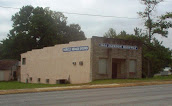
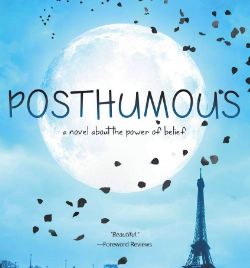



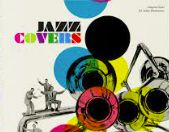

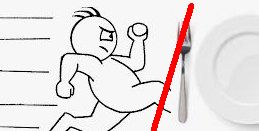
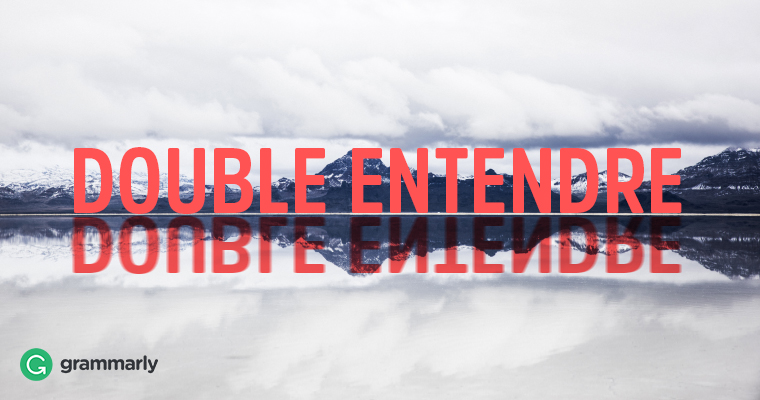


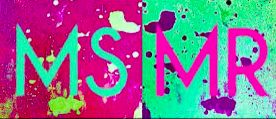



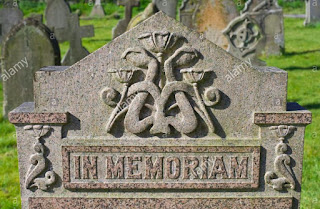

























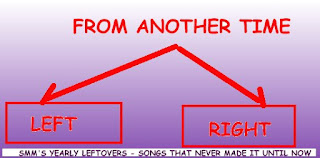











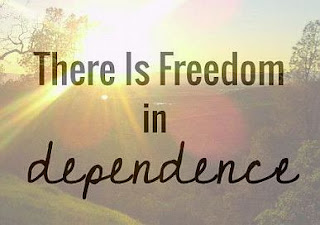
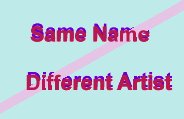














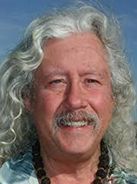
























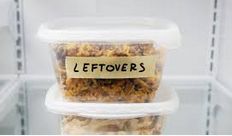


















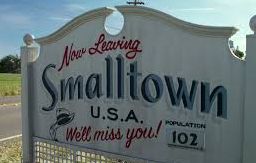





















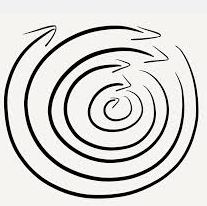


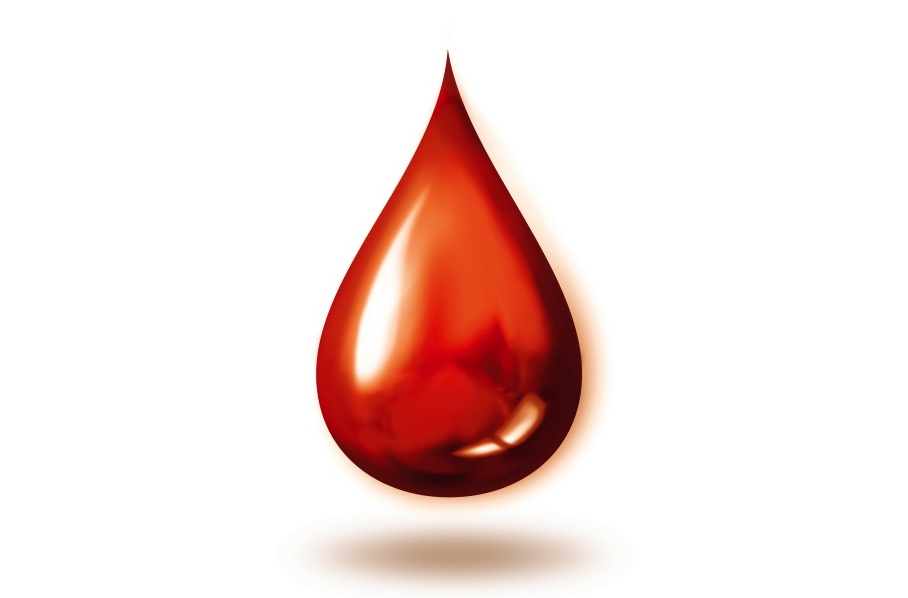





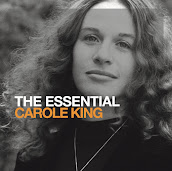

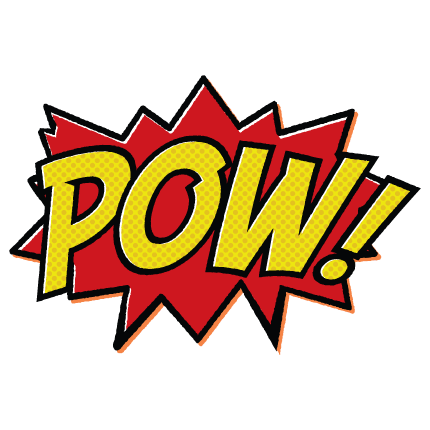

















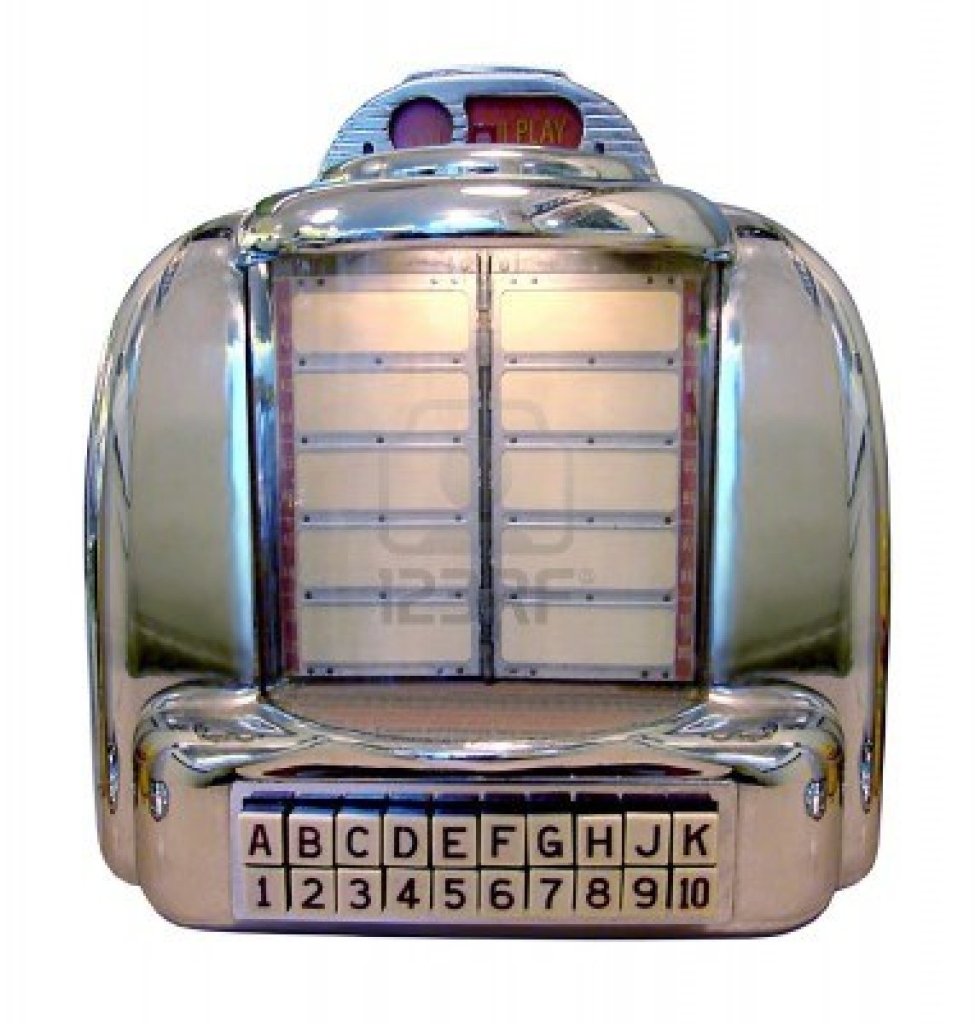







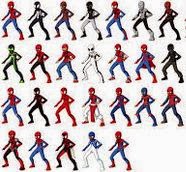
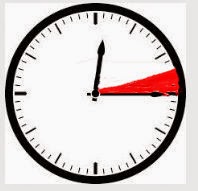

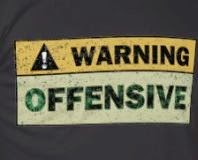
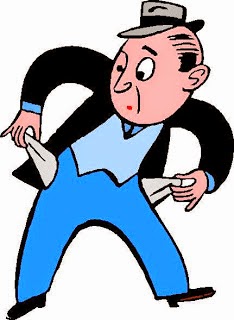

















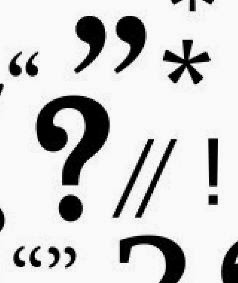



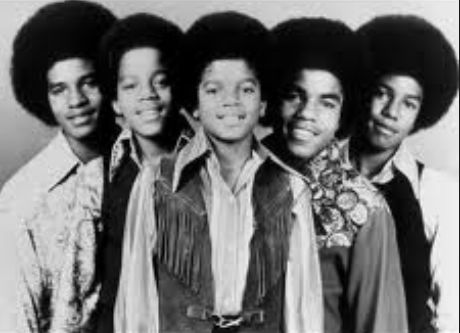
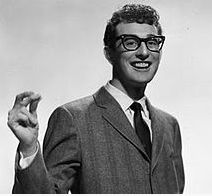



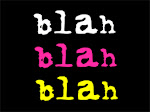
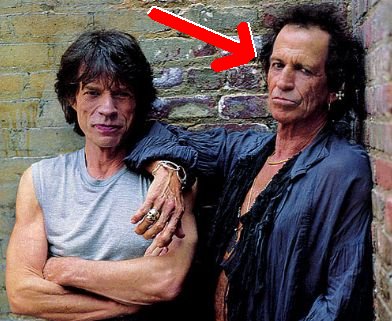










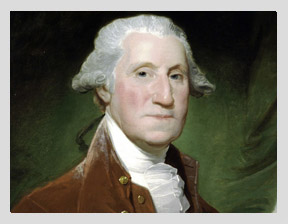






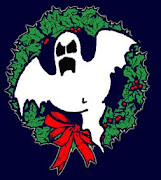

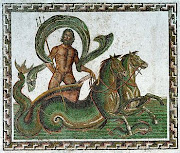




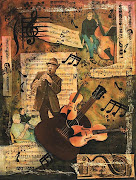

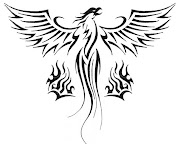
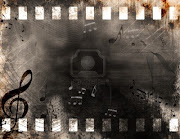
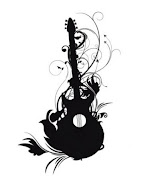
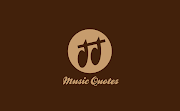
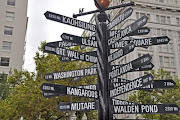
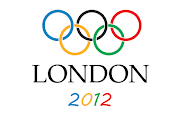

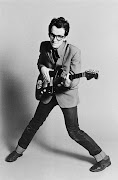
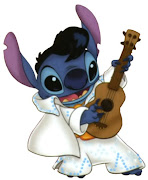


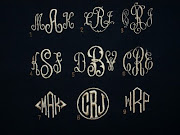





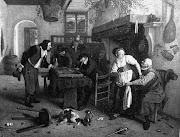
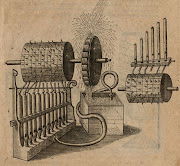

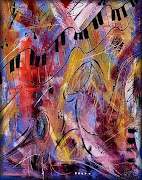
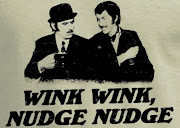

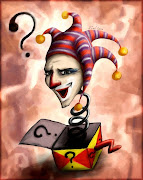
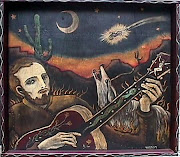
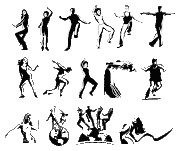




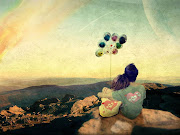




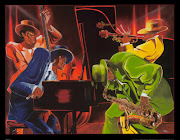


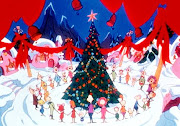
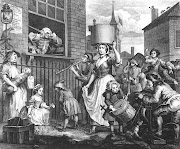





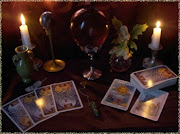




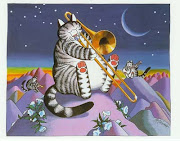
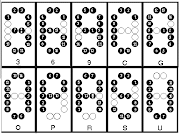
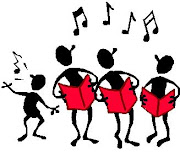


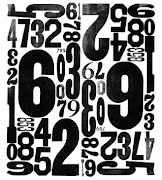


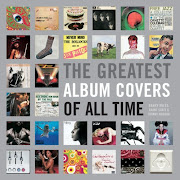


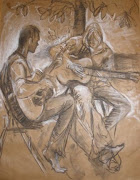
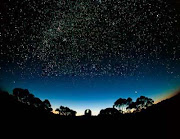



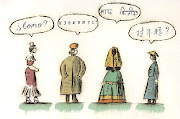
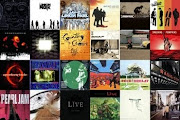




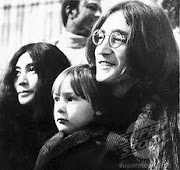
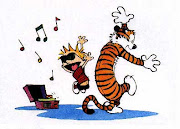




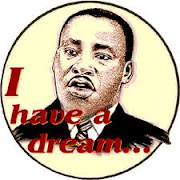
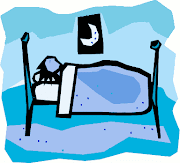
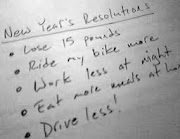
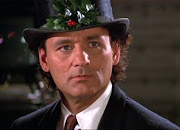

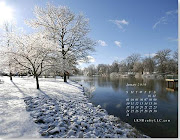


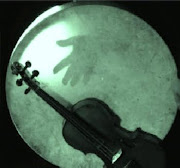
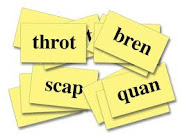
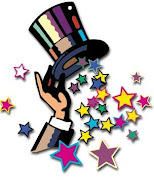

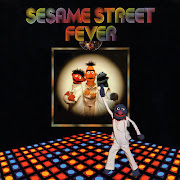


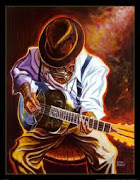
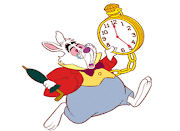
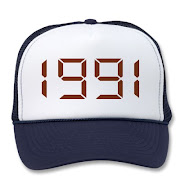
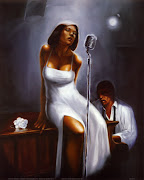

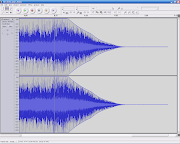
Posted by KKafa at 4:24 PM View Comments
Labels: The Beatles

Merle Haggard: Okie from Muskogee
[purchase]
No compilation of hippie music is complete without acknowledging its counterpart, the anti-hippie song. And no song better embodies the counter-counter-culture than Merle Haggard's "Okie from Muskogee."
Haggard released the song twice in 1969 (as a studio recording and again as a live record), at the height of the anti-war protests. Its lyrics take a broad swipe at the hippie ethos. "We don't smoke marijuana in Muskogee," Haggard boasts in the song's opening salvo. "We don't let our hair grow long and shaggy...Leather boots are still in style for manly footwear...The kids here still respect the college dean."
There's a lingering question as to whether Haggard subscribed to the song's philosophy. It's easy to assume he was being sincere; listen to the introduction he gives the song on his landmark Okie from Muskogee Live record. "Okie" is one of several songs Haggard wrote and recorded at the time tweaking the counter-culture ("Fightin' Side of Me", "Working Man Blues"). And he didn't squawk when Richard Nixon endorsed the song and used it at political rallies.
But, in many interviews over the past two decades, Haggard has claimed he meant "Okie" to be a character study or satire. For example, in an interview with the A.V. Club website, Haggard says the song is merely "documentation of the uneducated that lived in America at the time." In another interview cited by Tom Roland in the book Number One Country Hits, Haggard says, "I didn't intend for 'Okie' to be taken as strongly from my lips as it was." And certainly, Haggard has written many songs that could be considered to be left of center, including Steinbeck-esque portraits of economic injustice in California, where he grew up.
"I always thought everybody got 'Okie from Muskogee' wrong," Bob Dylan told Rolling Stone in a profile of Haggard. "It's one of the funniest satires ever. If Randy Newman had written it, nobody would have thought twice."
Maybe. I suspect that while Haggard may not have fully sympathized with the song's sentiment, he meant for it to appeal to people who aligned themselves with its philosophy. As his politics changed -- and as he came to be recognized by the mainstream music press as one of the finest writers in the history of country music (an assessment I whole-heartedly agree with) -- Hag began engaging in a bit of revisionist history.
Kris Kristofferson, who for years satirized "Okie from Muskogee" in his live act, offers one of the best assessments of the song, suggesting it could be a kind of hippie anthem after all. He told Rolling Stone: "I remember saying...'Maybe that's the only bad song he ever wrote.' I was wrong. That song is saying 'I'm proud to be an Okie from Muskogee.' Coming from his background in California, that's like saying I'm black and I'm proud."
Posted by Mt. Vernon Mike at 9:15 AM View Comments
Labels: Merle Haggard, The Age of Aquarius

[purchase]
Talk about a period piece. It's hard to imagine "Get Together" making a mark in any era but the groovy 1960s. "Come on people now, smile on your brother, everybody get together, try to love one another right now." Those lyrics couldn't be sung in earnest by Sinatra in the 1940s or the Black Eyed Peas today.
In fact, the song predates the hippie movement a bit. It was written by Dino Valenti (later of Quicksilver Messenger Service) in 1960. In the mid-60s, various folkies and rockers took a stab at the song, including Judy Collins, Jefferson Airplane and the Kingston Trio. When the Youngbloods -- led by Jesse Colin Young -- first released the song in 1967, it was not an immediate hit. Two years after its initial release, "Get Together" was used as the soundtrack to a public service announcement, produced by the National Conference of Christians and Jews, advocating for peace, love and understanding. (Ah, the '60s!) The Youngbloods' recording was re-released and became a top 5 hit. "From then on," writes Brian Boone in his book I Love Rock and Roll (Except When I Hate It), "it became an iconic flower-child anthem, mostly after the fact, popping up in countless '60s documentaries, '60s-set movies, Boomer-targeted soda commercials and what felt like every other episode of China Beach."
Posted by Mt. Vernon Mike at 8:58 AM View Comments
Labels: The Age of Aquarius, The Youngbloods
Di Leva: Vi Har Bara Varandra
[purchase]
Funny thing about hippies: they tend to be right. Oh sure, it's easy to sneer at the earnestness and positivity: after all, sneering is just what we do. They're so naive. And those clothes! They probably don't wash! I'll bet they smell bad... So we joke and belittle, look down our noses and snort, because we're just so much worldlier than them. But deep down we know: they're right.
You see, the world would be a better place without hatred and war. The love of one another and the planet we appear to be trying so hard to ruin may well be the only thing that can pull us all back from the brink. These ideas aren't really open to debate, but we debate them anyway because that's the only way we can think of to justify our cavalier behaviour. We're angry people, and we reserve the right not to want to move beyond that anger in order to try to find some positivity in amongst all the gloom and grime.
So it is that here in Sweden, Thomas Di Leva is something of a punchline. Resolutely hippy, happy in the childlike persona he wears like a comfortable kaftan, he sings about how all we have is each other and how everything is interconnected, and everyone snickers. Then they join in and sing along. And perhaps, just perhaps, the joke is on us because in that brief moment that catches us roaring along with the ridiculous, infectious chorus, we might understand the gleam in Di Leva's eye, and the fact that he made believers out of cynical-old us, however fleetingly.
As someone else once sang, Immerse your soul in love. After all, we only have each other.
Posted by Houman at 2:18 PM View Comments
Labels: Di Leva, The Age of Aquarius
Posted by Jordan Becker at 9:35 PM View Comments
Posted by KKafa at 7:36 AM View Comments
Labels: Blind Faith, The Age of Aquarius
Crosby, Stills, and Nash: Almost Cut My Hair
[purchase]
Yes, that's me up there, in 2002: prep school teacher, daddy, and long haired hippie freak. Though I've never identified as terribly liberal or hippie-ish, I managed to avoid cutting my hair from the middle of high school; by the time I turned thirty, I could sit on it. The stories that this brought about are numerous, and include multiple old ladies stroking my head without asking first, a long-standing reputation as one of the "cool teachers" on the faculty, and a long tense standoff with the well-intentioned folks at the Amsterdam airport, who seemed convinced that anyone who looked like one of the Fabulous Furry Freak Brothers was surely trying to smuggle hash back into the United States.
I swear, I only cut it because the changing table was higher than my hair hung down. That, and the sheer weight was starting to cause serious back and neck problems.
David Crosby's freak anthem, written and recorded in the midst of some pretty heavy drug use, has been recorded several times by Crosby and company, but I've always liked the long-form take above, recorded in 1970 but not released until 1991. It was played multiple times to welcome me to parties, in my long and misbegotten youth.
In my defense, I liked having long hair. The way it functioned as a bullshit detector for people carrying the weight of stereotype, and the way it lowered expectations from the universe, leaving room to impress, were a shield against the world as I learned to become a late-blooming adult. Unfortunately, I have no such excuse for the hemp necklace, nor the patchouli vial which hangs suspended from it, which you can see in the picture above.
Posted by boyhowdy at 6:03 PM View Comments
Labels: CSN, David Crosby, The Age of Aquarius